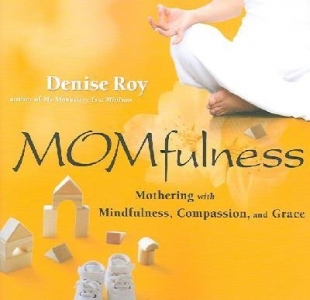"Smiling is very important. If we are not able to smile, then the world will not have peace.
— Thich Nhat Hanh, Being Peace
"Buddhist monk Thich Nhat Hanh refers to smiling as 'mouth yoga,' and he believes that smiling can change not only your life — it can change civilization.
"When our babies are brand new, we wait and watch and make fools of ourselves trying to coach them in their first smile. When it happens, we smile in return, we laugh, we beam, we run off to their baby book and record it (well, only if it's a first child and he or she has a baby book). In those early weeks and months, we realize that smiles are small miracles.
"Our children's smiles continue to captivate us for a while, but gradually we stop seeing them for the marvel that they are. Have we lost touch with the miracle of our own smile? Smiling is often one of the first things to disappear from our hassled lives. Our face develops grim lines, and we don't realize how stern we always look. Before we know it, we've lost our smile, and the level of happiness in our home changes. Our children see us and wonder if they really want to grow up to be adults that look like they never have much fun.
"Smiles need to be stretched and exercised if we want them to get stronger. Mouth yoga makes not only our faces feel better but our whole bodies. When we smile, endorphins are released, and hundreds of muscles in the face and body relax. Our mood is improved, and we begin to care for others with more humor and kindness.
"Until you practice it, you won't realize how powerful it can be. Smile when you're doing the dishes, or when you're folding the laundry, or when you're stopped at a red light, or first thing in the morning before you get up. No matter what you are doing, take a deep breath and smile.
"Doing mouth yoga won't get the dishes done any faster or create less laundry for us to do. What smiling will do is remind us that underneath all of our busyness, there's grace, there's a spaciousness that we can bring inside of us. It reminds us that in this moment, we are well. Perhaps we'll be surprised to discover ourselves being grateful for the soapy water, for the folded socks, for the noisy kids in the backseat. Perhaps in that moment we will find peace.
"Smiling is a wonderful practice to do in families. Maybe it's the end of a long day; you've raced out of work, picked up the kids, managed to put dinner on the table, and plopped into your chair. You're ready to eat. Before you start to gulp down your food and wipe up the kids' spills, spend one moment looking around at your family. Take a deep breath. Now smile.
"Smiling can change how you eat your meal. It can mean the difference between your being present and grateful for your family and your feeling burdened or stressed by your family. Your meal together can become nourishing at many levels.
"You may feel some resistance to smiling, as you might with any new exercise program. Play with it. Experiment with slight smiles, maybe letting just the corners of your mouth tilt up half a centimeter. Even doing this just once a day, at a time when you don't ordinarily smile, can bring your body and mind together again, and this will help you feel so much better.
"As Thich Nhat Hanh tells us, 'Simple practices like conscious breathing and smiling are very important. They can change our civilization' (Peace Is Every Step). So today, change civilization or at least change the way you are fully present in this moment. Who knows, maybe they are one and the same!
Mouth Yoga
"Right now, practice some mouth yoga.
• As you read this, smile.
Is it a little smile?
Can you make it bigger?
• Pay attention to how your face feels.
Do you notice any resistance?
Do you notice any shifts in your body? Your mind?
• Take a few breaths while smiling.
• Later today, see if you can remember to find your smile.
• Surprise yourself! Find yourself smiling in situations where you'd least expect to.”
